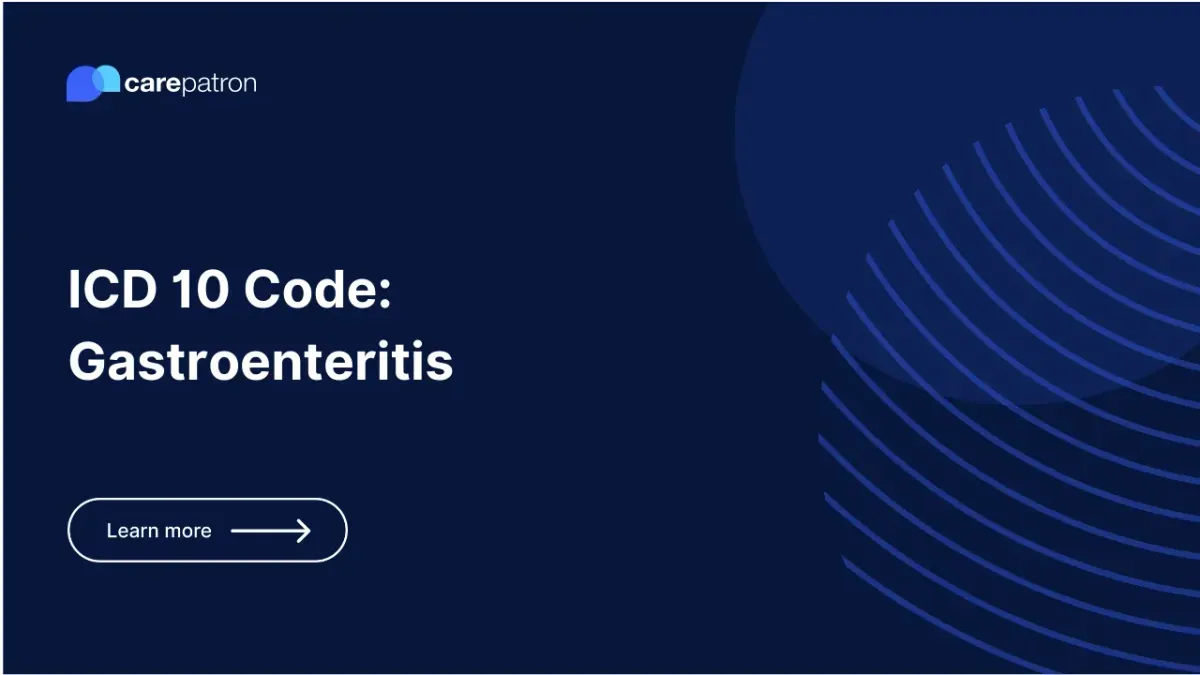
Gastroenteritis ICD-10-CM Codes
Learn about gastroenteritis, including its causes, symptoms, diagnosis, and the ICD-10 codes used for accurate classification and billing.
Use Code
EHR and practice management software
Get started for free
*No credit card required
Free
$0/usd
Unlimited clients
Telehealth
1GB of storage
Client portal text
Automated billing and online payments
